友情提示点击顶部放大镜 可以使用站内搜索 记住我们的地址 www.hainabaike.com
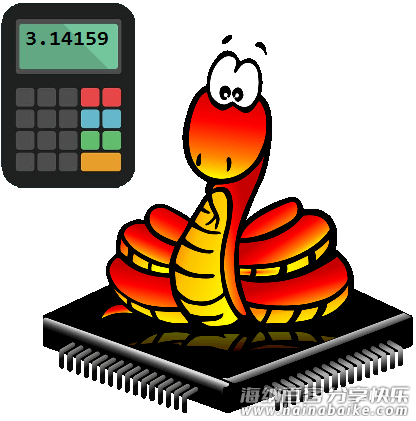
MicroPython 在不同的硬件上性能测试数据,为选择性能合适的硬件提供参考。
测试的开发板:
micro:bit
PYB Nano
PYBV10
ST Nucleo_F091RC
ST Nucleo_F411RE
STM32L476DISC
STM32F7DISC
ST Nucleo_H743ZI
ESP8266
ESP32 WROVER
MicroPython 版本
microbit
- 1.9.2
ESP32 Lobo
- 3.20.20
All other device
- 1.9.4-479
测试项目
- Integer addition 1000,000 times
- Float addition 1000,000 times
- Integer multiplication 1000,000 times
- Float multiplication 1000,000 times
- Integer division 1000,000 times
- Float division 1000,000 times
- 1000 digit Pi calculation
- 5000 digit Pi calculation
- 100,000 digit Pi calculation
结果
| MCU | Freq | Int Add | Float Add | Int Mul | Float Mul | Int div | Float Div | Pi:1000 | Pi:5000 | Pi:100000 | |
|---|---|---|---|---|---|---|---|---|---|---|---|
| microbit | nRF51822 | 16M | 61.89 | 78.03 | 71.59 | 81.60 | 67.95 | 106.87 | 10.98 | – | – |
| Nucleo_F411 | STM32F411 | 96M | 5.86 | 13.96 | 6.07 | 14.02 | 6.07 | 14.07 | 1.25 | 19.03 | – |
| PYBV10 | STM32F405 | 168M | 3.44 | 7.93 | 3.56 | 7.97 | 3.56 | 8.13 | 0.67 | 10.8 | – |
| Nucleo_L432KC | STM32LM32 | 32M | 20.86 | 46.35 | 21.49 | 46.55 | 21.95 | 46.71 | 2.60 | 49.44 | – |
| STM32L476DISC | STM32L476 | 80M | 8.59 | 18.34 | 8.99 | 18.42 | 8.93 | 18.49 | 1.37 | 21.45 | – |
| STM32F7DISC | STM32F746 | 192M | 1.93 | 5.16 | 2.45 | 5.08 | 2.12 | 5.39 | 0.21 | 5.42 | 4276.47 |
| Nucleo_H743 | STM32H743 | 400M | 0.86 | 1.96 | 0.94 | 1.98 | 0.91 | 2.07 | 0.11 | 4.66 | 1004.32 |
| ESP8266 | ESP8266 | 80M | 15.55 | 18.34 | 17.96 | 18.92 | 16.96 | 21.46 | 2.09 | 40.22 | – |
| ESP32 | ESP32 | 240M | 2.61 | 4.42 | 2.79 | 4.42 | 2.72 | 4.66 | 0.57 | 8.41 | – |
| ESP32 psRAM | ESP32 | 240M | 3.37 | 7.96 | 3.55 | 17.88 | 15.25 | 8.32 | 0.67 | 18.01 | 12394.50 |
| K210 | K210C | 8.19 | 8.76 | 8.23 | 8.74 | 7.75 | 8.76 | 0.12 | 2.82 | 1480.96 |
'''
File: benchmarks.py
Descript: benchmark test for different microcontroller
Author: Shao ziyang
Data: 2018-Octo-25
Version: 1.0
'''
import time
import machine
import gc
def pi(places=100):
# 3 + 3*(1/24) + 3*(1/24)*(9/80) + 3*(1/24)*(9/80)*(25/168)
# The numerators 1, 9, 25, ... are given by (2x + 1) ^ 2
# The denominators 24, 80, 168 are given by (16x^2 -24x + 8)
extra = 8
one = 10 ** (places+extra)
t, c, n, na, d, da = 3*one, 3*one, 1, 0, 0, 24
while t > 1:
n, na, d, da = n+na, na+8, d+da, da+32
t = t * n // d
c += t
return c // (10 ** extra)
def pi_test(n = 5000):
t1 = time.ticks_ms()
t = pi(n)
t2 = time.ticks_ms()
r = time.ticks_diff(t2, t1)/1000
print(' Pi', n, 'digit calculation: ', r, 's')
return '%.2f'%r
def int_add_test(n = 1000000, a = 12345, b = 56789):
t1 = time.ticks_ms()
sum = 0
for i in range(n):
sum = a + b
t2 = time.ticks_ms()
r = time.ticks_diff(t2, t1)/1000
print(' Integer Add test', n, 'times: ', r, 's')
return '%.2f'%r
def float_add_test(n=1000000, a = 1234.5678, b = 5678.1234):
t1 = time.ticks_ms()
sum = 0
for i in range(n):
sum = a + b
t2 = time.ticks_ms()
r = time.ticks_diff(t2, t1)/1000
print(' Float Add test', n, 'times:', r, 's')
return '%.2f'%r
def int_mul_test(n=1000000, a = 12345, b = 56789):
t1 = time.ticks_ms()
sum = 0
for i in range(n):
sum = a * b
t2 = time.ticks_ms()
r = time.ticks_diff(t2, t1)/1000
print(' Integer Mul test', n, 'times: ', r, 's')
return '%.2f'%r
def float_mul_test(n=1000000, a = 1234.5678, b = 5678.1234):
t1 = time.ticks_ms()
sum = 0
for i in range(n):
sum = a * b
t2 = time.ticks_ms()
r = time.ticks_diff(t2, t1)/1000
print(' Float Mul test', n, 'times: ', r, 's')
return '%.2f'%r
def int_div_test(n=1000000, a = 123456, b = 567):
t1 = time.ticks_ms()
sum = 0
for i in range(n):
sum = a // b
t2 = time.ticks_ms()
r = time.ticks_diff(t2, t1)/1000
print(' Integer Div test', n, 'times: ', r, 's')
return '%.2f'%r
def float_div_test(n=1000000, a = 12345.678, b = 56.789):
t1 = time.ticks_ms()
sum = 0
for i in range(n):
sum = a / b
t2 = time.ticks_ms()
r = time.ticks_diff(t2, t1)/1000
print(' Float Div test', n, 'times: ', r, 's')
return '%.2f'%r
def mem():
r = gc.mem_free()
print('free memory:', r)
print('Speed test')
try:
print('System freq: {:.1f} MHz'.format(machine.freq()[0]/1000000))
except:
print('System freq: {:.1f} MHz'.format(machine.freq()/1000000))
print('
Calcaulate integer addition')
gc.collect()
mem()
d1 = int_add_test()
d2 = int_add_test()
d3 = int_add_test()
r_int_add = min(d1, d2, d3)
print('Integer addition test result: ', r_int_add, 's')
mem()
print('
Calcaulate float addition')
gc.collect()
mem()
d1 = float_add_test()
d2 = float_add_test()
d3 = float_add_test()
r_float_add = min(d1, d2, d3)
print('Float addition test result: ', r_float_add, 's')
mem()
print('
Calcaulate integer multiplication')
gc.collect()
mem()
d1 = int_mul_test()
d2 = int_mul_test()
d3 = int_mul_test()
r_int_mul = min(d1, d2, d3)
print('Integer multiplication test result: ', r_int_mul, 's')
mem()
print('
Calcaulate float multiplication')
gc.collect()
mem()
d1 = float_mul_test()
d2 = float_mul_test()
d3 = float_mul_test()
r_float_mul = min(d1, d2, d3)
print('Float multiplication test result: ', r_float_mul, 's')
mem()
print('
Calcaulate integer division')
gc.collect()
mem()
d1 = int_div_test()
d2 = int_div_test()
d3 = int_div_test()
r_int_div = min(d1, d2, d3)
print('Integer division test result: ', r_int_div, 's')
mem()
print('
Calcaulate float division')
gc.collect()
mem()
d1 = float_div_test()
d2 = float_div_test()
d3 = float_div_test()
r_float_div = min(d1, d2, d3)
print('Float division test result: ', r_float_div, 's')
mem()
print('
Calcaulate Pi 1000 digit')
gc.collect()
mem()
try:
d1 = pi_test(1000)
d2 = pi_test(1000)
d3 = pi_test(1000)
r_pi_1000 = min(d1, d2, d3)
print('1000 digit Pi calculation result: ', r_pi_1000, 's')
mem()
except:
r_pi_1000 = None
print(' calculation error')
print('
Calcaulate Pi 5000 digit')
gc.collect()
mem()
try:
d1 = pi_test(5000)
d2 = pi_test(5000)
d3 = pi_test(5000)
r_pi_5000 = min(d1, d2, d3)
print('5000 digit Pi calculation result: ', r_pi_5000, 's')
mem()
except:
r_pi_5000 = None
print(' calculation error')
print('
Calcaulate Pi 100,000 digit')
gc.collect()
mem()
try:
d1 = pi_test(100000)
d2 = pi_test(100000)
d3 = pi_test(100000)
r_pi_100000 = min(d1, d2, d3)
print('100000 digit Pi calculation result: ', r_pi_100000, 's')
mem()
except:
r_pi_100000 = None
print(' calculation error')
print('Test result:')
print(' Integer addition test result: ', r_int_add, 's')
print(' Float addition test result: ', r_float_add, 's')
print(' Integer multiplication test result: ', r_int_mul, 's')
print(' Float multiplication test result: ', r_float_mul, 's')
print(' Integer division test result: ', r_int_div, 's')
print(' Float division test result: ', r_float_div, 's')
if r_pi_1000:
print(' 1000 digit Pi calculation result: ', r_pi_1000, 's')
if r_pi_5000:
print(' 5000 digit Pi calculation result: ', r_pi_5000, 's')
if r_pi_100000:
print(' 100000 digit Pi calculation result: ', r_pi_100000, 's')
这份数据来自 Shao ziyang 老师的分享。
https://github.com/shaoziyang/micropython_benchmarks
标签: 编程MicroPythonpythonESP8266MicroPESP32micro:bitpyboard性能测试
文章来源:
MicroPython 实验室
版权声明:本站资源来自互联网收集,仅供用于学习和交流,请遵循相关法律法规,本站一切资源不代表本站立场,如有侵权、后门、不妥请联系本站删除。




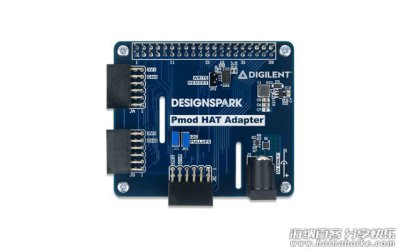


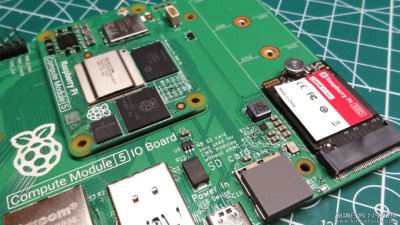
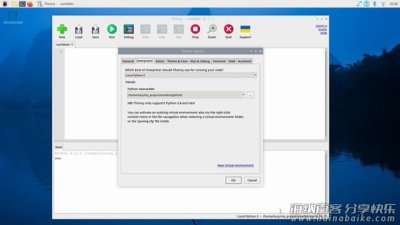
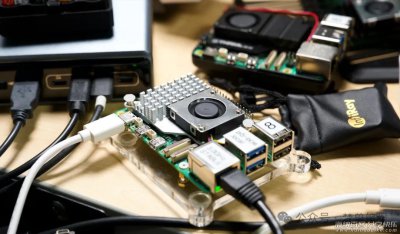
评论列表